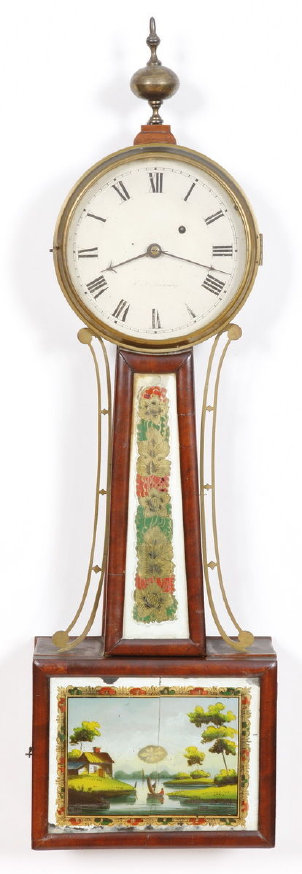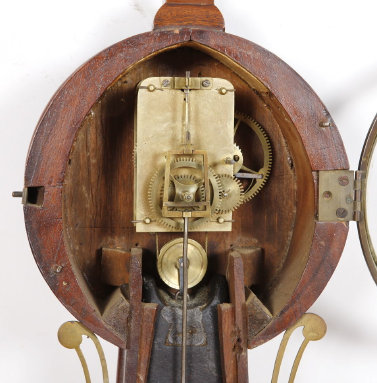Weight driven banjo clock by Joseph Nye Dunning of Concord, MA and Burlington VT. He was in partnership with Lemuel Curtis, a Simon Willard Apprentice. Dunning was born in Brunswick, Maine on January 2nd, 1795 and died in Burlington, Vermont on December 14th, 1841. He was first a journeyman working for Lemuel Curtis in Concord and then formed the partnership of Curtis & Dunning in 1820. The very next year Curtis & Dunning moved to Burlington, Vermont. They were famous for many forms of New England weight driven wall clocks including banjo clocks, lyre, tavern, gallery, commercial regulators, and girandoles. In 1832, the partnership dissolved and Dunning continued to work on his own. This example offered for sale is an original clock with an untouched signed dial and original reverse painted glasses. While the lower tablet experienced a crack, it nevertheless is a fine example of a country folk paintings typically found in a Second Generation Banjo clock. The half round "torus" mahogany frames are also a regional period detail that you find in the 1825 - 1835 period. The eight day weight driven timepiece with single bridge suspension mounts to the case with a center bolt from the rear of the case. Note the "barbed" hands made from steel and the keystone bar in the pendulum assembly. The cast iron weight is original to the clock and has never broken out the bottom of the case. The finish is old and dry with an overall warm patina. The dimensions of the clock are 33 X 10 X 3 1/2 inches.


